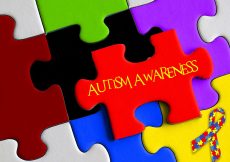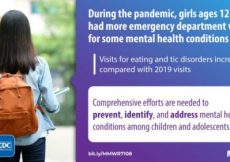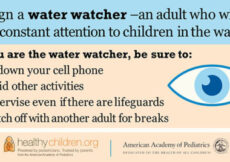The ability to map letters to sounds is considered an important indicator of early literacy skills. Previous research shows that letter sound mappings in kindergarten is strongly associated with later reading success and some children later diagnosed as dyslexic may show poor letter-sound knowledge in the preschool years. However, there is little known research about the relationship between sleep, memory development, and literacy skills.
A new study published in Child Development provides initial evidence that daytime naps could be beneficial for preschool children’s learning of letter-sound skills. The research, conducted by scholars at Macquarie University in Australia, the University of Oxford, the University of York and the University of Sheffield investigated whether a daytime nap supports preschool children’s ability to learn letter sounds and to transfer this newly learned knowledge to the recognition of printed words. This study provides initial evidence that naps could be beneficial for preschool children’s learning of letter-sound mappings.
Having a nap after learning might facilitate the capacity to utilize newly learned information in a new task. We found a positive nap effect on children’s learning of letter-sound mappings, and in particular, using that knowledge to read unfamiliar words.”
Hua-Chen Wang, Lecturer, School of Education at Macquarie University
Thirty-two three-to-five-year-old children from two daycare centers in Sydney, Australia who napped regularly participated in the study. The daycare centers did not provide formal teaching of letter names or sounds.
Each child participated in seven sessions over two to four weeks which included the following:
- Pre-test: To establish baseline levels of letter-sound knowledge.
- Letter-sound mapping training: Held a week apart under both “nap” and “no-nap conditions.”
- Post-tests: To assess learning once after a nap and once after a period of wakefulness. To examine whether any effect of nap on learning was maintained, knowledge was also reassessed one day later. Each session assessed letter-sound mappings and using explicit learning (e.g., “Which sound does the letter C make?”) and knowledge generalization tasks (e.g., “Here’s Tav and Cav, which one is /kav/?”).
The authors predicted that if a nap benefits letter-sounds skills, then children who napped would perform better on both the explicit learning tasks (e.g., children were asked to produce or recognize the letter sounds they learned earlier) and knowledge transfer tasks (e.g., children were asked to identify unfamiliar words containing the letter sounds they learned earlier). The findings showed that napping did appear to positively affect performance on the knowledge transfer test. This nap benefit was maintained the following day.
The authors acknowledge that because the study was conducted at daycare centers instead of in a laboratory (to make the children more comfortable), they were unable to measure physiological features of sleep such as rapid eye movement (REM) and how they are related to the sleep benefits. This would be an important direction for future research. The authors also note that since the nap effect was only found in generalizing letter-sound knowledge to recognizing printed words, but not on the explicit learning measures, future research on this topic with a larger sample size is recommended.
“The research provides initial evidence that naps facilitate the acquisition and application of letter-sound mappings, abilities that are crucial to early reading development,” said Anne Castles, Professor of Psychological Studies at Macquarie University. “These findings may have implications for creating the optimal conditions for the acquisition of this fundamental literacy skill in preschool children.”
Source:
Society for Research in Child Development
Journal reference:
Wang, H-C., et al. (2022) Nap effects on preschool children’s learning of letter-sound mappings. Child Development. doi.org/10.1111/cdev.13753.



































